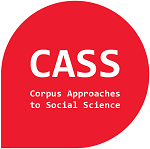Homophobic bullying, whether verbal, physical, or cyber, is a significant and prevalent issue in schools[ref]Rivers, Ian. (2011) Homophobic Bullying. Oxford: Oxford University Press.[/ref]. Stonewall, a leading charity in campaigning for lesbian, gay and bisexual (LGB) rights, reported in 2012 that 55% of LGB children in British schools experience bullying[ref]http://www.stonewall.org.uk/documents/school_report_2012(2).pdf[/ref]. They also reported earlier in 2007 the results of a YouGov survey of over 2,000 primary and secondary teachers who suggest that it isn’t just LGB young people that experience homophobic bullying and harassment but that it is a wider issue that is experienced by young people regardless of their sexual orientation.[ref]http://www.stonewall.org.uk/other/startdownload.asp?openType=forced&documentID=1695[/ref]
Bullying is sadly still a ubiquitous element of many students’ school experiences[ref]Poteat, V. Paul., Mereish, Ethan. H., GiGiovanni, Craig. D. & Scheer, Jillian. R. (2013) ‘Homophobic Bullying’. In, Rivers, Ian & Duncan, Neil (Eds.) Bullying: experiences and discourses of sexuality and gender. Oxon: Routledge. Pp. 75-90.[/ref] which has immediate and long-term detrimental effects for the victims of bullying[ref]Cowie, Helen. (2013) ‘Immediate and long-term effects of bullying’. In, Rivers, Ian & Duncan, Neil (Eds.) Bullying: experiences and discourses of sexuality and gender. Oxon: Routledge. Pp. 10-8.[/ref]
Those who are bullied are affected in terms of their physical, psychological and social health and well-being: loneliness, depression, anxiety, low self-esteem; psychosomatic symptoms such as headaches, abdominal pain, and sleeplessness; poor school grades; premature alcohol and tobacco consumption. These are all generally associated with children being bullied.
So important is the specific issue of homophobic bullying that the independent children’s services inspectorate, Ofsted, which is responsible for the regulation of quality in maintained schools and academies in the UK, recently implemented ‘exploring the schools actions to prevent homophobic bullying’ to its list of briefings used during school inspections; a very positive move in the prevention of homophobic bullying.
Children’s literature is a key educational resource
Children’s literature is already almost inextricably linked to education. Literature is already used in schools to encourage and teach literacy as well things like sex and relationships education (SRE), citizenship; and Personal, Social, Health, and Economics (PSHE) education. In recent years, children’s literature has also been recognised as a credible and useful resource for preventing homophobic bullying and creating inclusive culture[ref]No Outsiders Project Team (2010) Undoing Homophobia in Primary Schools. Staffordshire: Trentham Books Ltd.[/ref], although LGBT-inclusive books are yet to become a staple of school libraries. So, why not integrate or produce LGBT-inclusive resources that help schools prevent homophobic bullying?
Doing something about it
There is a growing recognition of the need, want, and support for resources aimed at young people to promote inclusive, anti-homophobic practices but there is still little being done to address the lack of resources. So, with the help of the FASS-Enterprise Centre and the ESRC Centre for Corpus Approaches to Social Sciences (CASS) at Lancaster, on July 16th a day event will take place in the Palace of Westminster. At this event, I host a number of key spokespersons from the diverse areas of politics, publishing, retail, charities, and academia where recent work relating to homophobia, homophobic bullying and children’s literature will be shared and discussed in order to better challenge homophobia and homophobic bullying through children’s literature.
Work to be presented on the day
Stonewall’s head of Education, Wes Streeting, and Professor of Human Development at Brunel University, Ian Rivers will present recent work on homophobic bullying in schools. Paul Baker, Professor of English Language and Linguistics at Lancaster University, will present the results of work done using corpus linguistic methods on changing representations of homosexuality in the British press. Mark McGlashan, PhD student at Lancaster University, presents work on current representations of same-sex parent families in picturebooks. Beth Cox presents on her work as part of Inclusive Mind, a collaborative network of consultants and campaigners which aims to increase socially inclusive representations in children’s literature. Finally, teacher trainer, consultant and writer Mark Jennett presents work on using children’s literature as resources for inclusion in schools.
Funded by

